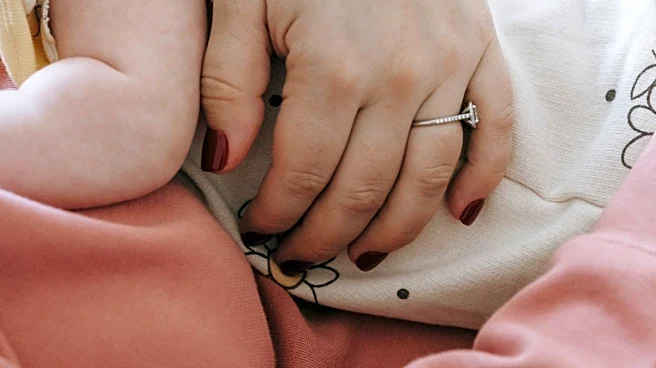What's Happening?
A study has identified several factors associated with lower rates of exclusive breastfeeding (EBF) among Japanese mothers, including primiparity, older maternal age, twin birth, delivery during the COVID-19 pandemic, and winter birth. The research highlights
the complex interaction of these factors and suggests that healthcare providers should consider them when designing breastfeeding support programs. The study emphasizes the need for targeted interventions to promote EBF, particularly for mothers with risk factors for non-EBF.
Why It's Important?
Exclusive breastfeeding is crucial for infant health, providing essential nutrients and immunological protection. The study's findings can inform public health strategies to increase EBF rates, addressing barriers faced by specific groups of mothers. It highlights the importance of tailored support and education to improve breastfeeding practices and outcomes.
What's Next?
Healthcare providers may develop targeted support programs for mothers with identified risk factors, such as first-time mothers and those giving birth during the pandemic. Further research could explore the cumulative effects of these factors on breastfeeding practices and outcomes.
Beyond the Headlines
The study may influence public policy regarding maternal health and breastfeeding support, promoting initiatives to address barriers to EBF. It could also lead to discussions about the cultural and societal factors affecting breastfeeding practices.















